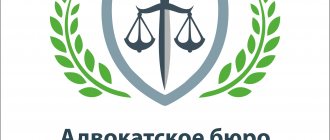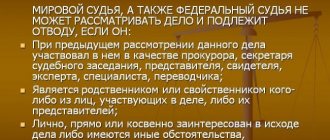Criminal liability for violation of currency legislation
According to the new version of Article 193 of the Criminal Code of the Russian Federation, violation of the requirements of the currency legislation of the Russian Federation on the crediting or return of funds, committed in a large amount, is recognized as a criminal offense only if it was committed by a person who was previously subjected to administrative punishment for a similar act.
By virtue of the new edition of Part 2 of this article, violation of the requirements of the currency legislation of the Russian Federation on the crediting of funds in foreign currency or rubles in large amounts from one or more non-residents to the accounts of a resident in an authorized bank or to the accounts of a resident in banks located outside the territory of the Russian Federation, in accordance with the established procedure, due to a resident in accordance with the terms of foreign trade agreements (contracts) for goods transferred to non-residents, work performed for them, services provided to them, information and results of intellectual activity transferred to them, including exclusive rights to them, is a criminal offense. The punishment, if such a crime is committed by a group of persons by prior conspiracy or by an organized group, is imprisonment for a term of up to five years with a fine in the amount of up to 1 million rubles or in the amount of wages or other income of the convicted person for a period of up to five years, or without it.
Similarly, violation of the requirements of the currency legislation of the Russian Federation on the return to the Russian Federation to the resident’s accounts in an authorized bank or to the resident’s accounts in banks located outside the territory of the Russian Federation, in the prescribed manner, funds in foreign currency or rubles in a large amount paid to one or to several non-residents for goods not imported into the territory of Russia, work not performed, services not provided, information and results of intellectual activity not transferred, including exclusive rights to them.
The following note has been added to the article:
The acts provided for in this article are recognized as committed on a large scale if the amount of uncredited or unreturned funds in foreign currency or the currency of the Russian Federation for one-time or multiple currency transactions carried out within one year exceeds 100 million rubles, and in an especially large amount - 150 million rubles.
The amounts of non-repatriated funds are increasing to calculate large and especially large amounts for the purpose of applying criminal liability measures.
The illusion of humanization: how the Criminal Code is changing
“The trends in changes in criminal legislation now, as always, reflect the general direction of legal and general government policy,” said Sergei Romanov, managing partner of Romanov & Partners Law Firm Romanov & Partners Law Firm Federal Rating. group Criminal law Company profile. According to him, this year this is clearly visible from the stories related to the protection of citizens of pre-retirement age, violations of the law on the Internet, as well as a number of articles related to the criminal liability of entrepreneurs.
Due to the fact that the changes affected a fairly wide range of criminal legal issues, it is hardly correct to talk about pronounced trends, says lawyer Zabeida and partners Zabeida and partners Federal Rating. Group Criminal Law Artem Sarkisyan.
In this case, a certain vector of legislative thought can be noted. It is expressed in the fact that the legislator seeks to create the illusion of humanization of criminal legislation and humanization remains only on paper, and de facto there is a “tightening of the screws”.
Artem Sarkisyan, lawyer Zabeida and partners Zabeida and partners Federal rating. Group Criminal Law
Legislation is being improved every year at an ever-increasing pace, measures are being taken to bring Russian legislation to international standards, says KIAP KIAP Federal Rating lawyer. group Arbitration proceedings (medium and small disputes - mid market) group Compliance group Corporate law/Mergers and acquisitions group (mid market) group International arbitration group Dispute resolution in courts of general jurisdiction group Labor and migration law (including disputes) group Antimonopoly law (including disputes ) group Bankruptcy (including disputes) (mid market) group Intellectual Property (Consulting) group Intellectual Property (Registration) group Family and Inheritance Law group TMT (telecommunications, media and technology) group Land Law/Commercial Real Estate/Construction group Intellectual Property (Protection rights and litigation) Group Criminal Law Company profile Evgeniy Metla. “However, not all changes seem so unambiguous; all that remains is to observe the application of these changes by investigative authorities and courts,” he noted.
Lawyer Yukov and Partners Yukov and Partners Federal rating. group Dispute resolution in courts of general jurisdiction group Arbitration proceedings (major disputes - high market) group Bankruptcy (including disputes) (high market) group Criminal law 4th place By number of lawyers 12th place By revenue 17th place By revenue per lawyer (more than 30 lawyers) Company profile Yakov Gadzhiev gave a more harsh assessment of the changes: according to him, the general trends in changes in the criminal procedural nature are inquisitorial in nature and are aimed at tightening a number of norms, especially if there is any informational reason for this. And many legislative initiatives to mitigate the liability of entrepreneurs and humanize existing legislation are faced with the fact that the changed norms are not applied in practice.
Next - about the most noticeable changes in the Criminal Code over the past year.
1
"A day in two"
Perhaps the most resonant change of all in the criminal law over the past year. The bill, first proposed back in 2008 (!), was remembered last year and hastily passed.
Now one day in a pre-trial detention center is equivalent to one day in prison and special and strict regime colonies, one and a half days in a general regime colony and educational colony, and two days in a settlement colony.
Metla explained the changes by the fact that the conditions in the pre-trial detention center are “equated to prison,” while it is impossible to determine with certainty whether a person will be sentenced to a prison sentence, because most of the defendants are ultimately sent to colonies, the conditions of detention in which are much more humane.
The norm has been in effect for less than a year, but the Federal Penitentiary Service has already reported on the practice of its application: 10,402 people were released from prison thanks to the recalculation of their sentences, and another 85,916 convicts received a reduction in their sentences.
Federal Law of July 3, 2022 No. 186-FZ.
2
Punishment for leaders of criminal communities
The Criminal Code was supplemented with a new article. 210.1 – “Occupying the highest position in the criminal hierarchy.” Punishment – imprisonment for a term of eight to 15 years, a fine of up to 5 million rubles. (or without it) and restriction of freedom for a period of one to two years.
Thieves in law and business: lawyers fear presidential amendments
The current Art. 210 of the Criminal Code, at the initiative of the president, was supplemented with a new part 1.1. It provides for liability for “participation in a meeting of organizers, leaders or other representatives of criminal communities or organized groups.” Punishment – from 12 to 20 years in prison. The minimum term of imprisonment for participation in an organized crime group was also tightened - from five to seven years. This excluded the possibility of a suspended sentence under the article. In addition, the courts were prohibited from imposing punishment below the minimum for these offenses.
These changes may put managers of legal entities, entrepreneurs and beneficiaries of legal entities under additional stress, Romanov warns. If earlier Art. 210 of the Criminal Code was widely used by investigators to prosecute the management of legal entities in the case of, for example, missing the statute of limitations for other crimes incriminated against them, then the introduction of this norm into the law could “additionally, probably artificially and excessively” aggravate the position of senior managers and owners of legal entities.
Federal Law of April 1, 2022 No. 46-FZ.
3
Responsibility for unfair practices in procurement
There was a punishment for “kickbacks” - abuses in the field of public procurement committed for self-interest by persons who are not officials and do not perform managerial functions in a commercial organization. If the “kickback” caused major damage, the offender faces three years in prison (instead of the previous 50,000 rubles). Otherwise, he will be brought to administrative responsibility.
Kings of government procurement 2022: sanctions and the tip of the iceberg
Criminal liability now also applies for bribery of a contract service employee, contract manager and other persons representing the interests of the customer. The punishment for this is up to three years in prison or a fine of up to 200,000 rubles.
Another crime was provocation of bribery in the procurement of goods, works, and services to meet state or municipal needs. Moreover, the reward is over 150,000 rubles. is considered a large amount of bribery, and over 1 million rubles. - especially large.
Federal Law of April 23, 2022 No. 99-FZ.
4
Mitigation of “entrepreneurial” articles of the Criminal Code
An entrepreneur can avoid criminal prosecution for certain crimes if he compensates the damage to the victim or the state. Criminal cases on several counts of fraud can now be terminated, but only if the accused has compensated for all the damage caused. In addition to fraudulent charges, the article on violation of inventive and patent rights, misappropriation or embezzlement, and causing damage by deception or breach of trust was “mitigated.”
The new opportunity to terminate criminal cases against entrepreneurs in case of compensation for damage seems to be some relaxation against the general background of “tightening the screws”, but in fact this is a technique elevated to law by investigators, forcing the defendant to admit to committing criminal acts for their classification under a less serious article, Romanov is sure .
In the presence of such a rule, the “customers” of criminal cases receive a powerful legalized lever of influence over entrepreneurs, the lawyer believes.
In the context of the abundance of “custom” criminal cases and the notorious reluctance of investigators to establish the objective truth for the sake of the need to obtain a guilty verdict, such a rule looks like an offer that is almost impossible for a businessman who has come under criminal prosecution to refuse, regardless of his actual guilt.
Defense is better than attack: how to save a business when attacked by security forces
Sargsyan agrees: the provisions proposed in the bill are “half-measures” that, in the absence of an integrated approach, will not solve the problem of unfounded prosecution of entrepreneurs, but will only create additional loopholes that the investigative authorities will actively use.
Federal Law of December 27, 2022 No. 533-FZ.
5
Parole - earlier
In 2022, Art. 80 of the Criminal Code, which provides for the replacement of the unserved part of the punishment with a more lenient form. Now, replacing imprisonment with a more lenient type of punishment is possible after actually serving a quarter of the term (previously - a third of the term) for a crime of minor gravity, a third of the term (previously - half the term) for a serious crime and half of the term for a particularly serious crime (previously - two thirds). deadline). In addition, the same amendments prohibited courts from using forced labor in cases where the imposed sentence exceeds five years.
The current state policy is characterized by a formulaic principle of solving emerging problems, and the lack of flexibility in its approaches leads to the use of authoritarian methods in pre-trial detention centers and other correctional institutions. It seems to me that this is one of the main reasons for the introduction of norms mitigating the fate of those sentenced to imprisonment,” he added.
Federal Law of December 27, 2022 No. 540-FZ.
6
Unjustified dismissal
Art. 144.1. It established liability for “unjustified refusal to hire or unjustified dismissal of a person who has reached pre-retirement age.”
According to Romanov, the new article risks becoming “dead.” “Even after this norm comes into force, unscrupulous employers will not feel the changes, since the check on the report of a crime will be divided into the presence of documentary evidence of the legality of the dismissal,” he explained. Sargsyan expressed a similar thought: “Upon closer examination, it becomes obvious that the norm is declarative in nature and the norm will most likely be dead.”
He also does not rule out that this article could be used “indicatively” - in order to demonstrate the efficiency of the norm as a tool for protecting older citizens. “The initiation of such a criminal case may become the basis for further inspection of the entire business activity and the establishment of more serious crimes,” he warns.
Federal Law of October 3, 2022 No. 352-FZ.
7
And over the past year:
- The punishment for theft from bank cards has been tightened (Federal Law No. 111-FZ of April 23, 2022).
- Criminal liability was introduced for failure to comply with a decision to remove defamatory information from the Internet (Federal Law No. 348-FZ of October 2, 2022).
- Article 282 (“repost-extremist”) was partially decriminalized. Criminal Code (Federal Law of December 27, 2022 No. 519-FZ).
- The liability of employers for accidents at work has been tightened (Federal Law No. 114-FZ of April 23, 2022).
- Criminal liability was introduced for escaping from the scene of a “fatal” accident (Federal Law No. 65-FZ of April 23, 2022).
- The penalties for organizing gambling have been tightened (Federal Law No. 227-FZ of July 29, 2022).
- Established liability for entering into the register of securities owners or into the depository accounting system obviously incomplete or unreliable information (Federal Law of December 27, 2018 No. 530-FZ).
Large amount of damage due to non-payment of taxes
Large and especially large amounts of unpaid (uncalculated, unwithheld, untransferred) taxes and other obligatory payments have been adjusted. It is determined that:
A large amount is an amount of taxes, fees, and insurance premiums that exceeds 2,700,000 rubles over a period of three consecutive financial years, and an especially large amount is an amount that exceeds 30,500,000 rubles over a period of three consecutive financial years.
This concerns Article 198 of the Criminal Code of the Russian Federation “Evasion of an individual from paying taxes, fees and (or) an individual paying insurance premiums from paying insurance premiums.” Similar amendments, but with different amounts, were made in the notes to the remaining articles:
- 199 of the Criminal Code of the Russian Federation “Evasion of taxes, fees payable by an organization, and (or) insurance premiums payable by an organization paying insurance premiums”;
- 199.1 of the Criminal Code of the Russian Federation “Failure to fulfill the duties of a tax agent”
- 199.3 of the Criminal Code of the Russian Federation “Evasion of the insurer - an individual from paying insurance premiums for compulsory social insurance against industrial accidents and occupational diseases to the state extra-budgetary fund”
- 199.4 of the Criminal Code of the Russian Federation “Evasion of the insurer-organization from paying insurance premiums for compulsory social insurance against industrial accidents and occupational diseases to the state extra-budgetary fund.”
Inspection canceled only for personal cars
Mandatory technical inspection has been abolished since 2022. Federal Law No. 494-FZ dated December 30, 2021 gives the right to owners of personal cars to undergo technical inspection at their own request.
BUT, this only applies to personal transport. The requirement to undergo mandatory technical inspection annually is retained for commercial vehicles and for all vehicles upon sale and registration with the traffic police.
Technical inspection is also not canceled for personal cars that are used for business purposes, including under the terms of renting a car with a driver. You need to pass a technical inspection!
Criminal groups
The procedure for Article 210 of the Criminal Code of the Russian Federation “Organization of a criminal community (criminal organization) or participation in it (it)” has changed. A note has been added to it, from which it follows that:
Founders, participants, managers, members of management bodies and employees of a legal entity, as well as managers and employees of its structural unit are not subject to criminal liability only due to the organizational structure of the organization (structural unit) and the commission of a crime in connection with the exercise of their powers to manage the organization or in connection with the organization’s economic activities. The exception is the case when an organization (structural unit) was knowingly created to commit one or more grave or especially grave crimes.
Penalties have been introduced for traffic violators
Drivers who regularly do not comply with traffic rules will be fined up to 600 thousand rubles.
Exceeding the speed limit by more than 60 kilometers per hour, for driving into the oncoming lane or onto tram tracks on the opposite route, and the presence of several administrative fines may result in criminal liability. Punishment: up to two years in prison or a criminal fine of 200 to 300 thousand rubles. A repeated violation is punishable by three years in prison or a fine of 300 to 600 thousand rubles.
If the driver has already been prosecuted under the new article (264.2 of the Criminal Code), he may face up to three years in prison.
Blocking websites without trial for extremism
Federal Law No. 441-FZ dated December 30, 2021 expands the powers of Roskomnadzor to block sites. Amendments have been made to Article 15-3 of the Law “On Information, Information Technologies and Information Protection”.
Roskomnadzor, on the initiative of the Prosecutor General's Office, can restrict access to sites not only for calls for extremism, but also for posting information about organizations whose activities are prohibited.
Resources selling fake coronavirus vaccination certificates are prohibited.
Remote justice will work
Since 2022, it has become legal to file claims and complaints electronically through the government services website, and to participate in court hearings remotely via video link.
New rules were introduced by Federal Laws No. 500-FZ and No. 501-FZ dated December 30, 2021.
You can not only submit documents electronically, but also receive them. Courts and the Ministry of Internal Affairs can also send documents, including subpoenas, through government services directly to the user’s personal account.
Investigators now have the right to conduct interrogations, confrontations and identification of witnesses, victims and experts via video link.







